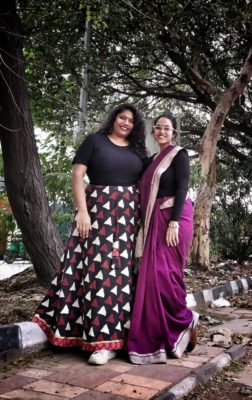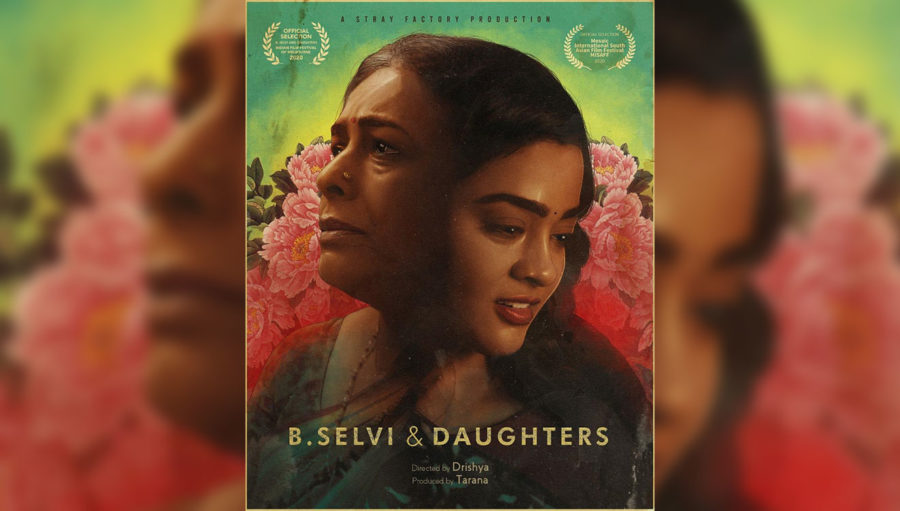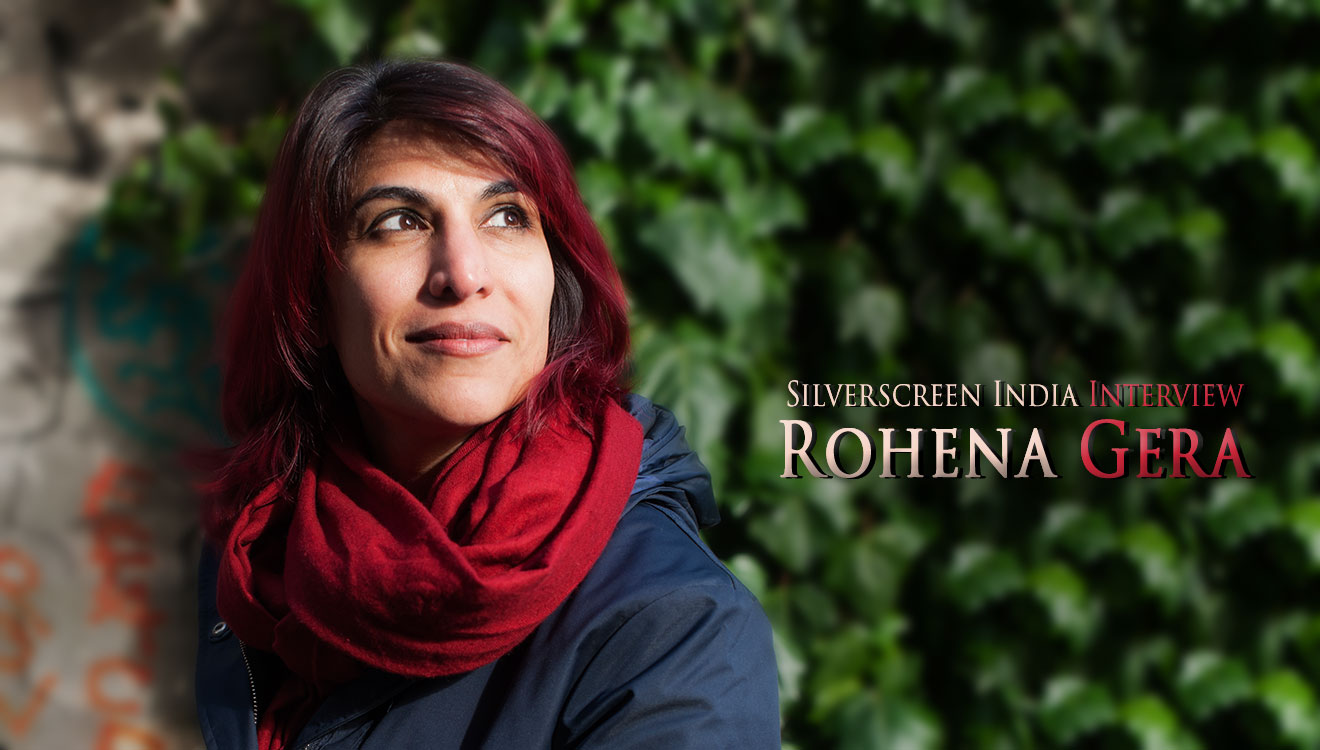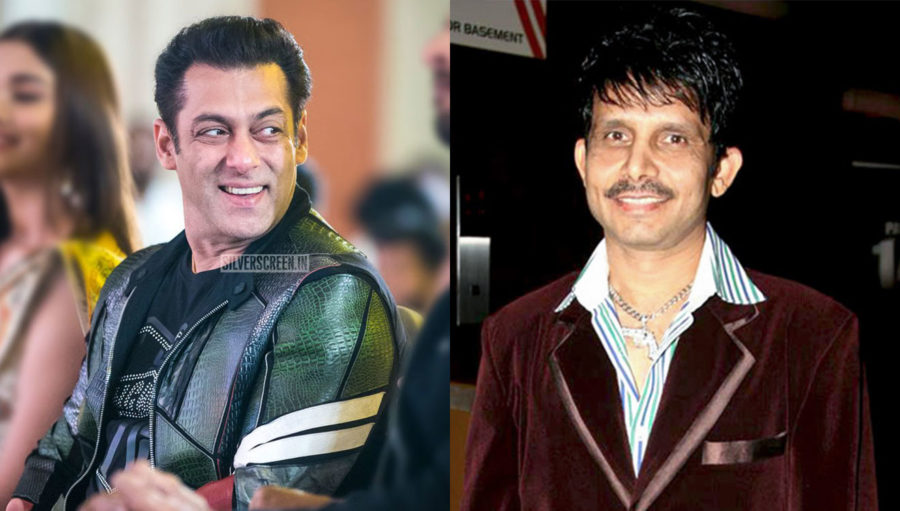In a scene in the 25-minute Tamil short film B. Selvi & Daughters, Selvi (played by Tamil actor Kalairani) starts reprimanding her daughter Kavitha (actor Gayathrie from Super Deluxe), for setting up a social media account for Selvi’s business of selling sarees.
“With whose permission did you do all this? All this is difficult, Kavi. I cannot do it,” Selvi says.
Kavitha’s intentions come from a place of goodness. She wants to help her mother, a single parent, make better business online than selling sarees on WhatsApp. One can also empathise with Selvi’s apprehensions of starting an e-commerce business after having done door-to-door sales as a hobby.
Mother-daughter relationships are a complex see-saw of emotions. They are almost always filled with support, love, anger, hate, trust, and irrationality. B. Selvi & Daughters, directed by Drishya Gautham and produced by Tarana Reddy, portrays this complex relationship.
Speaking to Silverscreen India, the director-producer duo, who have been writing partners for years and are now part of entertainment company Stray Factory, talk about the evolution of the project, their work and the portrayal of women in cinema.

Mothers
B. Selvi & Daughters was intended to be a feature film with fuller versions of the characters on screen, says Drishya. It was modified while applying for a grant by the Her&Now project for films promoting women’s entrepreneurship offered by Deutsche Gesellschaft für Internationale Zusammenarbeit (GIZ).
“There has been an advent of small businesses online and several women are running them from their homes. Women who once sold sarees to friends are now having online stores. I was fascinated by that. I also saw mothers of friends who would often be homemakers, filling their time with engaging work. However, these women would never associate the word ‘entrepreneur’ to themselves,” she says.
The story of a 50-year-old mother who gives up her career aspirations, like every other ‘good Indian mother’ for the upliftment of her family, highlights that conversation, she says. In the film, a year after her husband’s death, Selvi tries to convert her hobby of selling sarees door-to-door to an online business. Her fiercely-independent daughter Kavitha, who helps her mother set up the business, gives her the confidence to stand on her own two feet despite Selvi’s recurring insecurities.
“We do not think of our mothers enough. Come to think of it, we hardly pay attention to what middle-aged women go through,” Drishya says.
Recommended
In a scene in the film, a fearful Selvi applies for a loan at a bank. Her conviction is challenged each time she fails to answer the bank teller’s questions properly. Selvi’s trepidations are further made clear when she and her daughter go for lunch to her brother Saravanan’s (Jeevaravi) house during the Pongal festival. While Saravanan talks over all the women in the conversation, he further validates Selvi’s insecurity of not being able to start her business. The evolution of this relationship is interesting to watch.
Tarana says that women like Selvi sometimes may want to self censor. As Selvi begins to assert herself, she also finds respect. The empowering song in the background Naveeni, adds to the swagger of the scene.
“The final sequence between Selvi and Saravanan is unscripted. Kalairani ma’am got very comfortable in the character. When the two of them were talking during the time when I was getting the shot ready, they came up with this phenomenal banter. That is how we chose to end it,” says Drishya.
Walking the talk
Tarana says that the shoot took around four days but finding women technicians to work on the project was difficult. When they pitched the idea to GIZ to ensure a crew with mostly women, they hardly thought it would be a problem.

“The available women technicians were overworked. Others who were not given the opportunities, and hence were not as skilled. In the beginning we aimed at a cast and crew with 100% women but we had to get on with the project so we did. It took a while, especially because we did not want to just do this for tokenism. We are looking to collaborate with all these women in our future projects too,” she says.
She says that all the women on set, particularly technicians, were empathetic and emotional, making it a professional and considerate workspace and was worth the effort.
Future projects
While B. Selvi & Daughters was intended to be in the “uplifting space” and impact-oriented, Drishya and Tarana say that they are working on a feature film on women’s right, besides other projects.
“This is more of our vibe,” says Drishya.
B. Selvi & Daughters is streaming free of charge until November 22 on https://www.cinemapreneur.com/en/b-selvi-daughters



